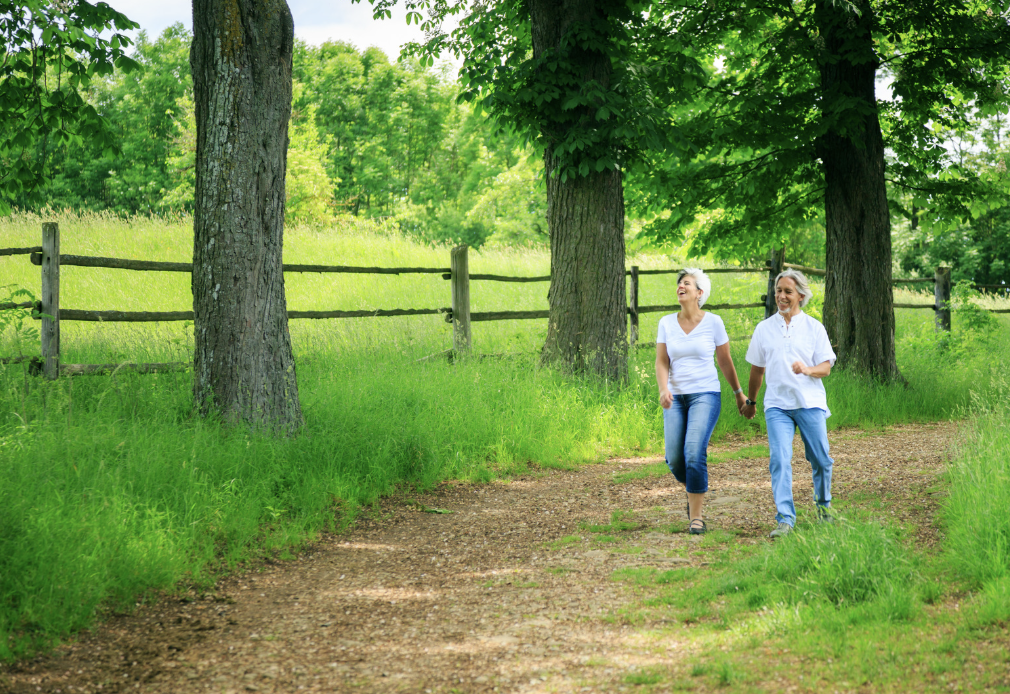It’s no coincidence that so many techniques that are recommended to help people relax involve nature. Whether you’re just visualizing a soothing outdoor scene or you’re spending time outside, nature is a great tool to promote relaxation and mental health. At Carolina Dunes Behavioral Health, in Leland, North Carolina, we provide evidence-based, inpatient care with a focus on restoring balance and renewing life.
While medications and therapy can be an important part of a mental health treatment plan, there are several arguments for also including outdoor time in a person’s mental health strategy:
- It’s often free
- Many people find it highly accessible
- It is beneficial for people of all ages, genders, and backgrounds
- There is a minimal risk of negative side effects
- It can be easily combined with other interventions
- There is research supporting its effectiveness
How Nature Helps
There are a couple of different theories about why nature is such good medicine for our mental health. These include:
- Attention restoration theory states that modern life has created intense mental fatigue and short attention spans, which nature is able to correct, thus improving mental health.
- A second theory claims that we function best in nature because that’s where our ancestors evolved.
- A third, related theory suggests that our stress levels are lower in nature because of a physiological response that allows us to better respond to daily stressors.
Time Required for Benefits
The more time a person can spend outside, the better, but even a little time can be helpful.
- One study found that students who spent less than a minute outside appreciating nature made fewer mistakes on an attention-draining task.
- Another study of 20,000 people in Europe found that two hours per week consistently boosted mental health in participants, regardless of the person’s job, income, physical limitations, or ethnicity.
- While a lengthy outdoor adventure, such as an extended camping trip, may be enjoyable, science seems to suggest that it’s more beneficial to have regular time outdoors, even if those interactions are short.
Green and Blue Spaces
Most people are familiar with the concept of green spaces, which refers to places with outdoor plant life, such as parks, forests, and gardens. Blue spaces are areas with water, which include ponds, rivers, lakes, waterfalls, and the ocean. Both blue and green spaces are examples of areas where a person can interact with nature.
Let There Be Light
Just like plants, humans need a certain amount of light to be their best, and light is also a part of nature. Getting enough sunlight helps plants to create their own food through photosynthesis, and it helps humans to release serotonin and Vitamin D, which:
- Improve mood and focus
- Relieve stress
- Enhance sleep
- Reduce symptoms of depression, anxiety, and other mental health concerns
We don’t need to spend hours each day in the sun to get the benefits. Just 10-15 minutes per day are needed. In the winter months, it may be difficult to get even that much sun, but a light box, which is sometimes used to treat seasonal affective disorder, may offer similar benefits.
When Nature is Less Accessible
Some people are not able to get to blue or green spaces easily due to mobility issues, transportation barriers, living in an urban area, etc. This does not mean that they cannot access the healing benefits of nature. They may just have to be more creative about how they do it:
- Listening to nature sounds
- Growing house plants or a container garden in whatever space they have available
- Visualization exercises that place them in a green or blue setting
Nature Therapy
There are mental health practitioners who are trained specifically in techniques that use nature to benefit mental health. This is sometimes called nature therapy, green therapy, or ecotherapy. There are many different ways that this is accomplished, and can include modifications for people who experience mobility barriers. There are many activities that ecotherapy can include, such as:
- Going for a walk
- Scenic bike rides
- Animal therapies
- Visiting a garden or botanical center
- Sitting in a park
- Nature photography or looking at photos of nature scenes
- Traditional therapy sessions conducted in an outdoor setting
At Carolina Dunes Behavioral Health in Leland, NC, we encourage our patients to develop a wide range of coping skills that they can use after they complete treatment in our program. This can help them make a smooth transition back into their homes, workplaces, and communities.





